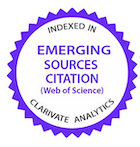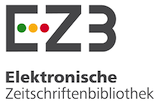Caracterização filogenética molecular e resistência antimicrobiana de Escherichia coli isoladas de caprinos neonatos com diarreia
DOI:
https://doi.org/10.1590/1089-6891v16i433639Palavras-chave:
E. Coli, Bactérias, Caprinos, AntibióticosResumo
A diarreia neonatal determina alterações significativas na conversão alimentar, resultando na queda daprodutividade de caprinos. A resistência antimicrobiana em bactérias caracteriza-se como importanteproblema de saúde pública, assim, a Escherichia coli pode ser caracterizada como importantepatógeno por expressar mecanismos de virulência responsáveis por significativas afecções clínicasem seres humanos e animais. O presente estudo avaliou a presença de E. coli em 117 amostrasfecais de caprinos e analisou a resistência antimicrobiana dos isolados. Colônias sugestivas foramsubmetidas a testes bioquímicos, seguido de determinação do grupo genotípico e análise filogenética;posteriormente foram submetidas à prova de suscetibilidade a antimicrobianos. Foram identificadosisolados de E. coli, Salmonella spp, Shigella sonnei e Enterobacter aerogenes. Isolados de E. coliforam classificados filogeneticamente em B2 (9/39), D (19/39), B1 (7/39) e A (4/29). Os fatores devirulência identificados foram K99 (04/39) e Stx (02/39). À prova de suscetibilidade antimicrobiana,os isolados foram sensíveis a Cloranfenicol, Estreptomicina, Amoxicilina e Ciprofloxacina, sendotodos resistentes à Lincomicina, Vancomicina e Penicilina. Os resultados reforçam a necessidade deestabelecimento de protocolos criteriosos para o uso de antimicrobianos, medida fundamental para oaprimoramento da sanidade dos rebanhos caprinos brasileiros.
Palavras-chave: antibióticos; bactérias; caprinos; E. Coli.
Downloads
Publicado
Como Citar
Edição
Seção
Licença
Copyright (c) 2015 Ciência Animal Brasileira / Brazilian Animal Science

Este trabalho está licenciado sob uma licença Creative Commons Attribution 4.0 International License.
Autores que publicam nesta revista concordam com os seguintes termos:
- Autores mantém os direitos autorais e concedem à revista o direito de primeira publicação, com o trabalho simultaneamente licenciado sob a Licença Creative Commons Attribution que permite o compartilhamento do trabalho com reconhecimento da autoria e publicação inicial nesta revista.
- Autores têm autorização para assumir contratos adicionais separadamente, para distribuição não-exclusiva da versão do trabalho publicada nesta revista (ex.: publicar em repositório institucional ou como capítulo de livro), com reconhecimento de autoria e publicação inicial nesta revista.
- Autores têm permissão e são estimulados a publicar e distribuir seu trabalho online (ex.: em repositórios institucionais ou na sua página pessoal) a qualquer ponto antes ou durante o processo editorial, já que isso pode gerar alterações produtivas, bem como aumentar o impacto e a citação do trabalho publicado (Veja O Efeito do Acesso Livre).






























